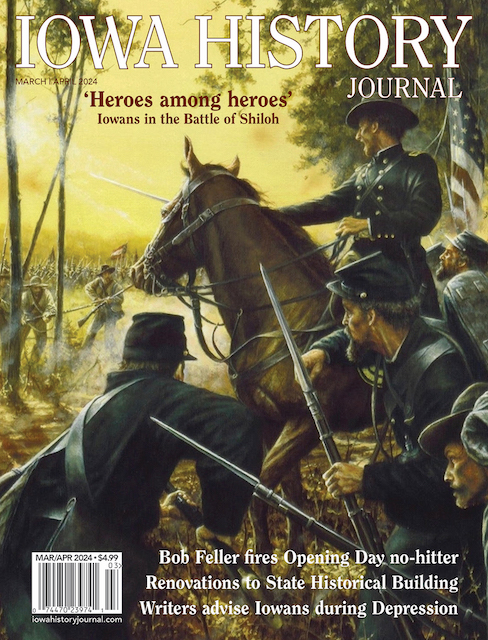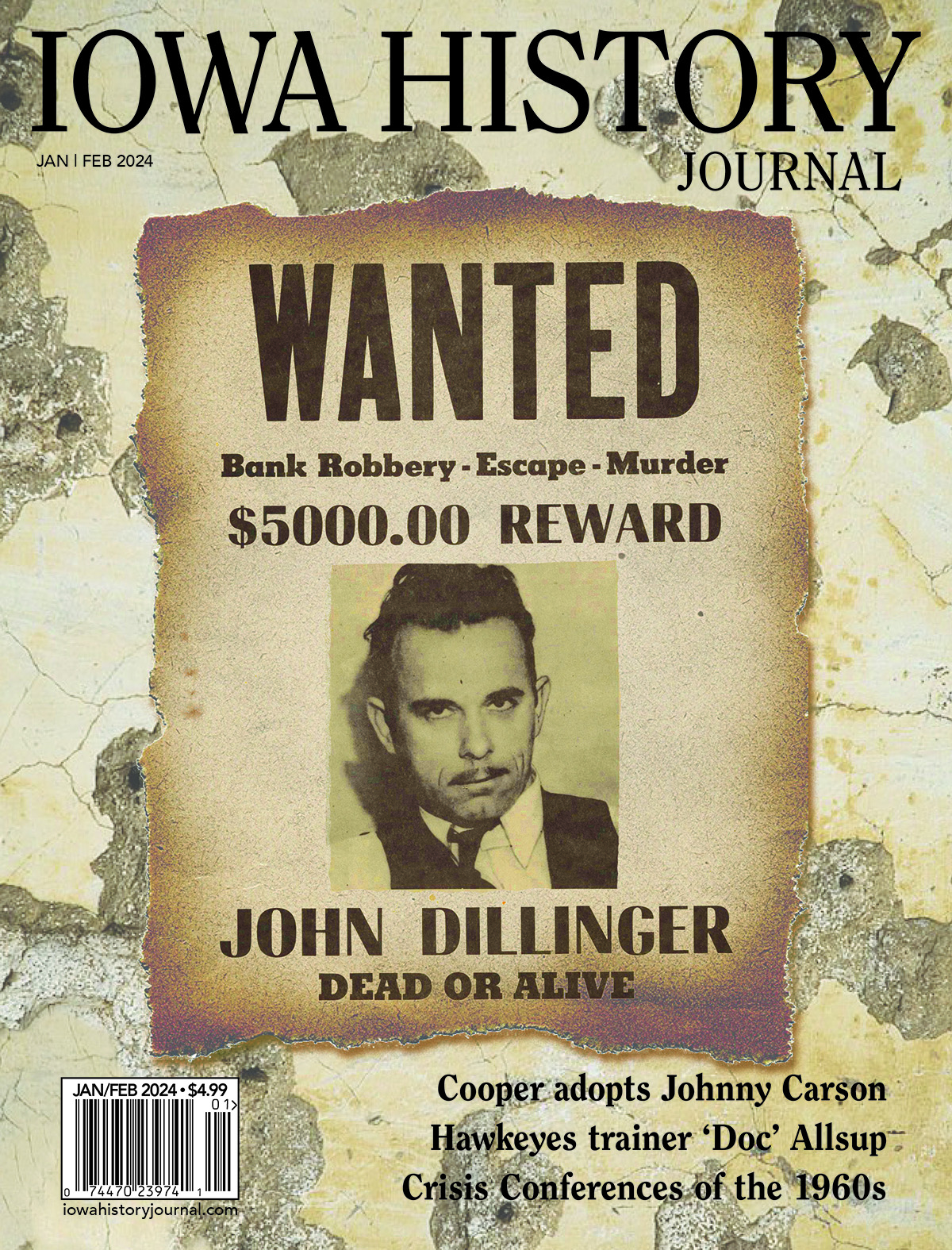
North Carolina historical artist Artist Dan Nance, captures the essence of the Battle of Shiloh. Visit dannance.com to see more of his work.
Volume 16, Issue No. 2, Mar/Apr 2024
No state, per capita, mustered more men to fight in the American Civil War than did Iowa. What’s more, Iowans participated in some of the war’s most bloody conflicts including the Battle of Shiloh on April 6-7, 1862, in an area located between a small church named Shiloh and Pittsburg Landing on the Tennessee River. More than 6,660 Iowa troops — by far the largest concentration of Iowa soldiers to fight in any battle in any war — fought in the Battle of Shiloh.
Award-winning writer Don Doxsie takes readers behind the scenes of the epic battle for our cover story, detailing the roles that Iowans played during the battle and afterwards to preserve the memories of those who paid the ultimate sacrifice to preserve the Union.
Publisher Michael Swanger marks the centennial of WHO Newsradio 1040 in his column.
Get the frame-by-frame account of Major League Baseball Hall of Fame pitcher Bob Feller’s Opening Day no-hitter on April 16, 1940, the first of its kind in MLB history from publisher Michael Swanger.
Have you heard of The Iowa Homemaker? Iowa State University history student Samuel Poage digs into ISU’s archives to tell the little-known story about the Fergusons, the ISU couple who wrote farm and home advice stories to help rural citizens survive the Great Depression.
Take a tour of the recently renovated, fully reopened State Historical Building of Iowa in downtown Des Moines that houses the state’s historical society, museum, library and archives from State Historical Society of Iowa Public Information Officer, Jeff Morgan.
Country Roads columnist Arvid Huisman urges the arrival of spring and shares his growing loathing for winter.

Volume 16, Issue No. 1, Jan/Feb 2024
Nearly 90 years after the most famous bank robber in U.S. history, John Dillinger, robbed the First National Bank in Mason City on March 13, 1934, the events of that day remain etched into the fabric of the town’s history. The Dillinger Gang stole $52,000 in cash and captured several hostages as they shot their way out of Mason City. It was one of a dozen bank robberies committed by the Dillinger Gang in the Midwest from June 1933 to June 1934 during the depths of the Great Depression. Newspaper reports of the brazen crime committed during broad daylight in the serene northern Iowa town and the gang’s subsequent escape captivated the imagination of readers across the nation and the ire of federal and state law enforcement officials. Soon afterwards, it helped give rise to Dillinger’s status as the nation’s first “Public Enemy No. 1” with the newly formed F.B.I. hot on his trail. Iowa History Journal Publisher Michael Swanger tells the story of the Dillinger Gang’s robbery in Mason City and its time spent in Iowa during its infamous crime spree, which reinforced the public’s fascination with outlaws, gangsters and other anti-heroes.
Publisher Michael Swanger devotes his column to visit state historical markers, including one that recognizes the Historic Center Street Neighborhood which was a vibrant business and cultural hub for the Black community in Des Moines during the 20th century.
Did you know Johnny Carson won this contest? Jeff Stein, radio host on News/Talk 1540 KXEL in Waterloo and Cedar Rapids, recalls when television talk show host Johnny Carson won a contest to be named Cooper’s 51st resident in 1981 as the small town celebrated its centennial that year.
Jerry Harrington, author of the new book, “Thunder from the Prairie: The Life of Harold E. Hughes,” dives into how former Gov. Hughes launched a statewide crusade against racism during the late 1960s with a series of conferences.
Take a behind-the-scenes-look at Doyle “Doc” Allsup, Iowa’s athletic trainer for the “Ironmen” and Rose Bowl champs of the 1950s, from first-time contributor Mark Petersen and grandson of Allsup.
Read the review of the latest compelling book written by Joy Neal Kidney, “What Lenora Never Knew.”
Country Roads columnist Arvid Huisman reminds readers to enjoy the little things in life as someday they may realize they were big things.
TO READ MORE FASCINATING STORIES ABOUT IOWA HISTORY, subscribe to Iowa History Journal. You can also purchase back issues at the store.
